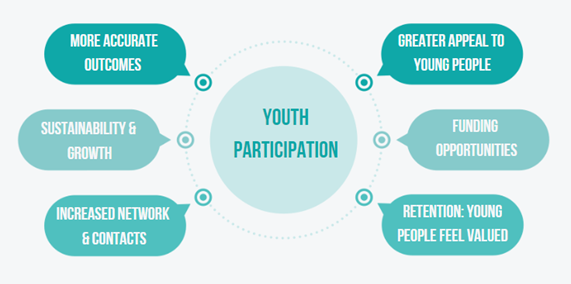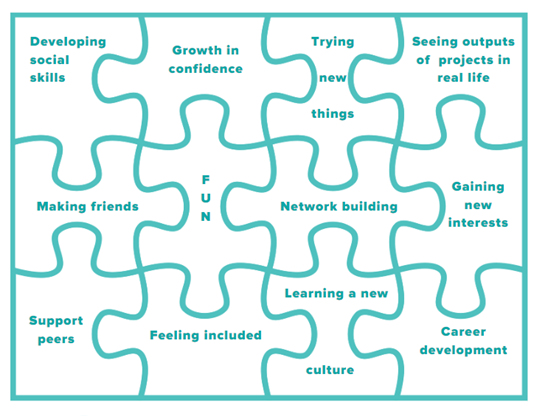In the latest instalment of the Historic Environment Forum’s Sector Resilience Interviews series focussed on the theme of Diversity and Inclusion, we hear from Jo Kirton at the Council for British Archaeology (CBA).
Please tell us a bit about yourself and your organisation’s role in the sector.
My name is Jo Kirton and I am currently the Delivery and Engagement Manager at the Council for British Archaeology (CBA). As part of this role I lead on all our Youth Engagement activity, typically covering anyone aged 25 and under. I am also a member of the CBA’s Executive Team. I have a background in community archaeology and academia.
The Council for British Archaeology (CBA) is an educational charity working throughout the UK to help people, of all backgrounds, experience and participate in archaeology. We aim to champion archaeology in all its forms, bringing together community groups, commercial units, academics, and heritage organisations to create and share opportunities to discover, take part and be inspired by archaeology.
Our core work is focused on five key areas of activity which support our membership, deliver our events and projects, underpin our statutory role as a National Amenity Society, support our publications, and deliver our youth engagement programmes.
What can you tell us about your organisation’s work in relation to Diversity and Inclusion? What does this work aim to achieve?
The CBA’s ‘Vision’ is to enable anyone to have the skills and opportunity to tell the stories of the people and places that connect us to our world, that help us understand it and to make it a better, more inclusive place.
Our Mission is to inspire people to explore places and engage with their environment through archaeology, we will help them make new connections with each other and the places in which they live, work, learn and grow. We will also help people explore and create heritage that matters to them, championing fresh perspectives in how we recognize and value things and places, everywhere. Finally, we aim to grow the public value of archaeology by connecting commercial, academic, and community groups to demonstrate the social impact of archaeology.
The CBA strongly believe that wider participation is essential to archaeology and it underpins our core values and approach to our work.
Anyone should be able to participate in archaeological activities and archaeology should be open to everyone. Yet, as an organisation, we recognise that we still have work to do to better understand many of the issues facing individuals participating in archaeology and to create changes that ensure archaeology is accessible to everyone. To this end, we have identified three key issues that we believe are crucial to ensuring that archaeology is a fair and open discipline and that we will therefore seek to address in our future work. These are the issues of othering, legacy, and representation.
One of the ways in which we are tackling the issue of participation is through our Youth Engagement programmes. The Young Archaeologists’ Club (YAC) has been the CBA’s flagship youth engagement programme for over forty years. The continued development and support of the network to provide opportunities for young people across the UK and to mitigate barriers to participation is at the heart of our work. However, over the past 4.5 years the CBA has embarked upon the development of its 16+ offer. We are keen to embed young people’s insights into our organisation and outreach projects, our goal is to remove barriers to young people’s participation and facilitate a youth-led approach through our Youth Advisory Board.
The board consists of 12 people, aged 18-25, representing young people from different backgrounds across the UK. Our Young Advisors are passionate about making a change in society, eager to upskill, and use their voice to make a difference at the CBA, in the archaeology and heritage sector, and beyond. As an organisation, there is so much we can learn from young people, and equally, we want to support their own personal development too. We have also established a Young Associate Network (ages 16-25) with a growing membership of 70+ and we are in process of developing a YAC Young Leaders Pathway aimed at 15-17 year-olds. All our project work is developed to mitigate barriers to participation and facilitate sustained and meaningful engagement with our members.
What contribution will this make towards resilience in the heritage sector?
The development of a pathway where young people, from all walks of life, can engage with archaeology and the wider historic environment from 8-25 has been a long-held ambition of the CBA, particularly after the cancellation of the Archaeology GCSE and A-Level.
We know through our impact evaluation of the YAC and the establishment of our YAC Alumni group (conservative estimates indicate that there are c. 30,000 YAC alumni in the UK), that engaging young people early in life by providing interesting, fun and accessible opportunities creates life-long advocates for the historic environment, some of which will seek a career in the sector. In our latest impact study, 70% of our members (aged 12-16), were considering a career in archaeology or a related field. Others will support membership organisations (like the CBA, through membership, volunteering and other means), who work to care for the historic environment and strive to utilise it to support individuals and groups to enjoy it in a way that is relevant and meaningful to them. Providing opportunities at 16+, where few exist and even fewer are supported financially, is even more critical to creating greater equity and ensuring that the sector is both relevant and youth-proofed.
Including young people’s voices within organisations, particularly where those young people are involved in governance, co-create/co-produce projects and strategies, where they develop and deliver projects for their peers, and where they are consulted and their contributions acted on, also makes those organisations more relevant to young people and the communities they come from, and this is key to ensuring the sector is both resilient and sustainable.
We recently collaborated with Youth Voice specialists, Participation People, to explore the benefits of youth voice and governance for organisations and the young people participating. This is what they found:
Key organisational benefits identified by the Youth Advisory Board:

Key benefits to young people identified by the Youth Advisory Board:

As an umbrella organisation, the CBA also has a wider network of stakeholders, from grassroots organisations through to commercial units. We have already begun to disseminate the learning from our 16+ youth engagement programmes to our wider network and intend to develop this further through our NHLF funded ‘Reconnecting Archaeology’ project, which will see us developing best practice models and ways of disseminating this to our network and exploring how we reach a wider, more representative, audience. In turn, we hope to support grassroots organisations to become more resilient by attracting a younger, more diverse audience and who themselves feel welcomed and heard, and see the relevance of archaeology to them and their communities.
What does success look like for your work?
Success for our youth engagement programmes can be measured in several ways. For example, the YAC Impact Study, which has funding for at least the next three years, has demonstrated the success of the model in terms of our members (and volunteers) enjoyment, wellbeing, career aspirations and more. Our demographic data demonstrates that the YAC appeals to young people and adults who are neurodiverse and increasingly to people from ethnically diverse backgrounds. Success for us would be to see this trend continue and to see this represented within the work force.
Success for us would mean the inclusion of more young people in decision making spaces within different organisations and groups, where their experience is valued and their ideas acted upon. We would like to see more paid placements and internships or where their time is remunerated and not taken for granted. At the CBA we are at the start of this journey and we hope others will join us or support us by sharing their own learning. Our 16+ offer has been and will be evaluated over the next three years thanks to funding from Historic England and it will also be evaluated and shaped by the young people who choose to work with us.
Success for us is also ensuring that our young people feel supported, welcomed and heard. That they have the opportunity to grow and develop new skills, and that they have fun doing it!
How can sector colleagues get involved or find out more?
There are over 75 YAC clubs across the UK. Young people can become members from the age of eight. We are also always looking to launch new branches and recruit volunteers. You can find out more here: https://www.yac-uk.org/
If you are aged 16-25, please consider joining our Young Associate Network, where we share news and opportunities on a monthly basis: https://form.jotform.com/231792316143352. You can also find our more about our Youth Advisory Board here: https://www.archaeologyuk.org/youth-engagement/youth-governance.html
In the next 12 months we will be launching our Young Leaders Pathway for ages 15-17, so if you’re interested in getting involved do keep an eye out on the YAC website.
If you would like to support the work of the CBA please consider:
- becoming a member: https://www.archaeologyuk.org/support-us/join-online.html
- donating to the CBA (there’s a YAC specific option that directly supports our Youth Engagement programmes): https://www.archaeologyuk.org/support-us/donations.html
- You can also follow us on social media at @archaeologyuk or sign-up to our newsletter: https://www.archaeologyuk.org/newsletter-sign-up.html
Overall, what do you think is most crucial for ensuring a resilient heritage sector?
I think the most crucial area we can all work on is creating ways of engaging with people that feel relevant and important to them. To do this we need to listen first. The sooner we start listening to people (i.e. young people!) the more likely they are to form a lifelong interest in our sector that will shape it for the better.
This Sector Resilience interview was shared by Jo as part of our Heritage Sector Resilience Plan activities.
If you’d like to contribute an interview as part of the series, follow the link below to find out more:

